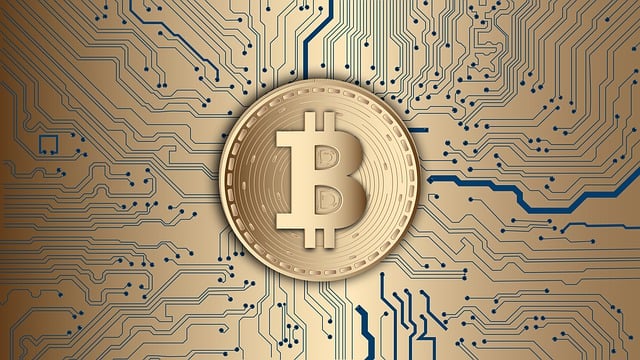Bitcoin Mining: Uncovering the Secrets of Crypto Game
Author: Jameson Richman Expert
Published On: 2023-11-29
Prepared by Jameson Richman and our team of experts with over a decade of experience in cryptocurrency and digital asset analysis. Learn more about us.
Bitcoin mining is a fascinating process that underpins the entire cryptocurrency ecosystem. It involves the utilization of powerful computers to solve complex mathematical puzzles in order to validate and record transactions on the bitcoin network. As a reward for their efforts, miners are granted new bitcoins, thus contributing to the circulation and security of the digital currency. In this article, we will delve into the world of bitcoin mining and explore its significance in the crypto landscape.

The Basics of Bitcoin Mining
Bitcoin mining is not your typical game. Rather, it is a highly competitive process that demands significant computational power and energy consumption. Miners employ specialized hardware known as ASICs (Application-Specific Integrated Circuits) to perform the required calculations. These ASICs are designed exclusively for bitcoin mining and offer unparalleled efficiency.
The ultimate goal of miners is to add new blocks to the blockchain, which serves as a public ledger containing all bitcoin transactions. To achieve this, they need to solve complex mathematical problems by repeatedly hashing information from the previous block, using various inputs, until they find a solution that meets specific criteria. This solution is known as a "proof of work."
The Role of Miners in the Bitcoin Network
Miners play a crucial role in maintaining the integrity and security of the bitcoin network. By validating and recording transactions, they ensure that double spending or fraud attempts are virtually impossible. Additionally, mining helps to distribute new bitcoins into circulation while providing an incentive for participants to continue supporting the network.
Each time a miner successfully solves a cryptographic puzzle and adds a new block to the blockchain, they are rewarded with a certain number of bitcoins. This reward serves as an incentive to motivate miners to invest in expensive hardware and compete with others in the network. The current reward is halved approximately every four years in an event known as the "bitcoin halving," which aims to control the inflation rate of the cryptocurrency.
Challenges and Sustainability Concerns
While bitcoin mining contributes to the functionality and security of the cryptocurrency, it also faces several challenges. One significant challenge is the increasing difficulty of the mathematical problems that miners need to solve. As more participants join the network and computational power rises, the difficulty increases to ensure a steady block creation rate.
Another concern associated with bitcoin mining is its environmental impact. The energy consumption required for mining operations has raised questions about its sustainability. Some argue that the carbon footprint of bitcoin mining is too high, as it heavily relies on fossil fuel-powered electricity. However, others argue that mining operations can be powered by renewable energy sources, reducing their environmental impact.

The Future of Bitcoin Mining
Bitcoin mining has gone through significant transformations since its early days. As the network evolves and new technologies emerge, the mining process may become more efficient and environmentally friendly. Some projects are exploring alternative consensus mechanisms, such as proof of stake, which would require less energy consumption.
Despite its challenges, bitcoin mining remains an integral part of the crypto game. The continuous growth of the network and the increasing adoption of cryptocurrencies suggest that mining will continue to play a vital role in securing decentralized digital assets like bitcoin.
Interested in learning more about cryptocurrencies? Check out these related articles:
- Crypto Gift Card: The Perfect Present for Crypto Enthusiasts
- Aventus Crypto Creates Subtitles and Writes a Mixed English Article
- Understanding Bear Markets in Crypto
- Exploring the FATF Travel Rule in the Crypto World
- Alchemy Pay Crypto: Revolutionizing the Payment System
- The Growing Potential of Crypto Trading: Exploring OpenDAO